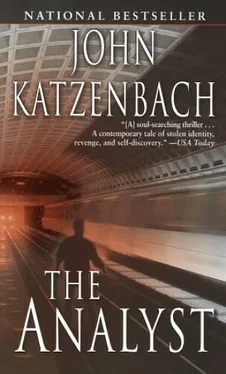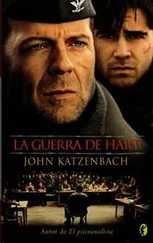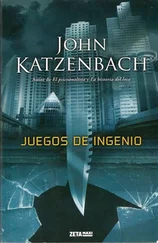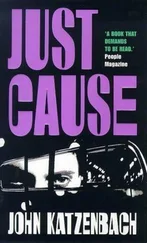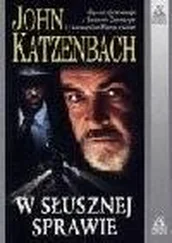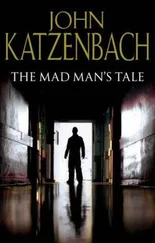“Well, thank you. We like to think we give personalized service…”
“But the unauthorized access?”
“Shortly after we closed down your account as per your instructions, someone sought to make adjustments to your account, using our electronic banking services. We only learned of these attempts because an individual telephoned after they were denied access.”
“They called?”
“Someone who identified themselves as you.”
“What did they say?”
“It was in the nature of a complaint. But as soon as they heard that the account had been closed, they hung up. It was all very mysterious and a little confusing, because our computer records show they had knowledge of your password. Have you shared that code with anyone?”
“No,” Ricky said. But he felt momentarily foolish. His password was 37383 which translated from numerals into letters as FREUD and was so blatantly obvious that he almost blushed. Using his birthday might have been slightly worse, but he doubted it.
“Well, I guess you were wise to close the account.”
Ricky thought for a moment, before asking, “Is there any way for your security to trace back either the phone number or the computer that was used to try to access the money?”
The bank vice president paused, then said, “Well, yes. We have that capacity. But most electronic thieves are capable of staying ahead of the investigators. They use stolen computers and illegal phone codes and that sort of thing to hide their identities. Sometimes the FBI has success, but they have the most sophisticated computer security in the world. Our local security is less advanced, and therefore less effective. And no theft took place, so the criminal liability is limited. We are required by law to report the attempt to banking regulators, but that merely becomes another entry in what I’m sorry to concede is a growing file. But I can still have our guy run that program for you. I just don’t think it will lead you anywhere. These electronic bank robbers are pretty clever. Usually just leads to a dead end, somewhere.”
“Would you try, please, and get back to me. Right away. I’m under some time constraints here,” Ricky said.
“We’ll give it a shot and get right back to you,” the man replied, hanging up.
Ricky sat back in his chair. For a moment, he allowed himself the fantasy that the bank security would give him a name and telephone number and this single slip would provide him the avenue to his tormentor’s identity. Then he shook his head, because he wondered whether Rumplestiltskin, so careful and cautious with everything to this point, would make an error that was so simple. Far more likely that the man had accessed that account and then made the subsequent disturbing and telltale telephone call with the precise intention of providing Ricky with a path to travel down. This thought worried him greatly.
Still, Ricky realized as the day began to flee from beneath him, that he now knew much more about the man stalking him. Rumplestiltskin’s clue within a poem had been curiously generous, especially for someone who had first insisted that his questions be answerable with a yes or no . The response had narrowed the distance between Ricky and a guess of the man’s name considerably, he thought. Twenty years, give or take a couple, put him into a range from 1978 through 1983. And his patient was a single woman, which eliminated a significant number of people. Now he had a framework that he could function with.
What he needed to do, Ricky told himself, was re-create five years of therapies. Examine every female patient in the time frame. Somewhere in that mix would be the woman wearing the right combination of neuroses and troubles that would have been subsequently directed at the child. Find the psychosis in flower, he thought.
As was Ricky’s training and habit, he sat, trying to focus, eliminating the sounds of the world around him, trying to remember. Who was I twenty years ago? he asked himself. And who was I treating? There is a tenet to psychoanalysis that helps form the foundation of the therapy: Everyone remembers everything. One might not remember it with journalistic accuracy or religious detail, perceptions and responses may be clouded or colored by all sorts of emotional forces, events recalled with clarity may actually be murky, but, when it is finally sorted through, everyone remembers everything. Hurts and fears can lurk deeply concealed under layers of stress, but they are there and can be found, no matter how powerful the psychological forces of denial can be. In his practice, he was adept at this process of peeling away, skinning memories down to the bone, to find the hard layer underneath.
So, alone in his office, he began to plumb his own memory. Occasionally he would glance over the shreds of notes and jotted images that constituted his record keeping, angry with himself for not being more precise. Any other physician, confronted with an issue from years past, would merely dust off some old file folder and pluck out the right name and diagnosis. His task was considerably harder, because all his file folders were invested in his memory. Still, Ricky felt a surge of confidence that he could manage this. He concentrated hard, a legal notepad on his lap, reconstructing his past.
One after another, images of people took form. It was a little like trying to converse with ghosts.
He discarded the men even though they intruded on his powers of recollection, leaving only the women. Names came slowly; oddly enough, it was almost easier to remember the complaints. Every image of a patient, every detail about a treatment, he wrote on the legal pad. It was still scattered and disjointed, inefficient and haphazard, but, at least, he thought to himself, it is progress.
When he looked up, he saw that his office had filled with shadows. Day had drifted away from him in this semireverie. On the yellow sheets of paper in front of him, he had come up with twelve separate recollections from the time period in question. At least eighteen women had been in some sort of therapy with him over that era. This was a manageable number, but he was troubled that there were others that he was blocking, unable to immediately recall. Of the group he recollected, he had only produced names for half of them. And these were the long-term patients. He had an unsettling sensation that Rumplestiltskin’s mother was someone he’d seen only briefly.
Memory and recollection were like Ricky’s lovers. Now they seemed elusive and fickle.
He rose from his chair, feeling stiffness and dull pain in his knees and shoulders, the tightening feeling one gets from sitting far too long in the same position. He stretched slowly, and bent down and rubbed a recalcitrant knee, as if he could warm it and reinvigorate it. He realized he had not eaten that day, not a bite, and was abruptly hungry. He knew there was little for him to fix in his own kitchen, and he turned and looked out the window at the fast-crawling night gliding across the city, realizing he would have to go out and purchase something. The thought of actually emerging from his apartment almost stifled his hunger and made his throat go dry.
He had a curious response: There had been so few fears in his life, so few doubts. Now the simple act of exiting his home made him pause. But he steeled himself to whatever thoughts might have intruded, and determined to head two blocks to the south. There was a little bar where he could get a sandwich. He did not know whether he would be watched- this was becoming a constant question for him-but he decided to ignore the feeling and proceed. And, he told himself, he had made progress.
The sidewalk heat seemed to pop into his face, like turning on a gas stove. He marched the two blocks south like a soldier, eyes front. The place he was looking for was in the middle of the block, with a half-dozen small tables set outside for the summer, and an interior that was narrow and dark, with a bar set against one wall and another ten tables packed into the space. There was an unusual mix of decorations on the walls. ranging from sports memorabilia to Broadway posters, pictures of actors and actresses and the occasional politician. It was as if the place hadn’t quite managed to carve out an identity as any one particular group’s hangout, and therefore tried to make a diverse collection happy, creating a sort of mishmash within. But the small kitchen, like so many similar places in Manhattan, made a more than passable hamburger or Reuben sandwich, and occasionally put some pasta on the menu, all at relatively inexpensive prices, a factor that occurred late to Ricky as he walked through the door. He no longer had a credit card that functioned, and his cash reserves were low. He made a mental note to start carrying the traveler’s checks with him.
Читать дальше
